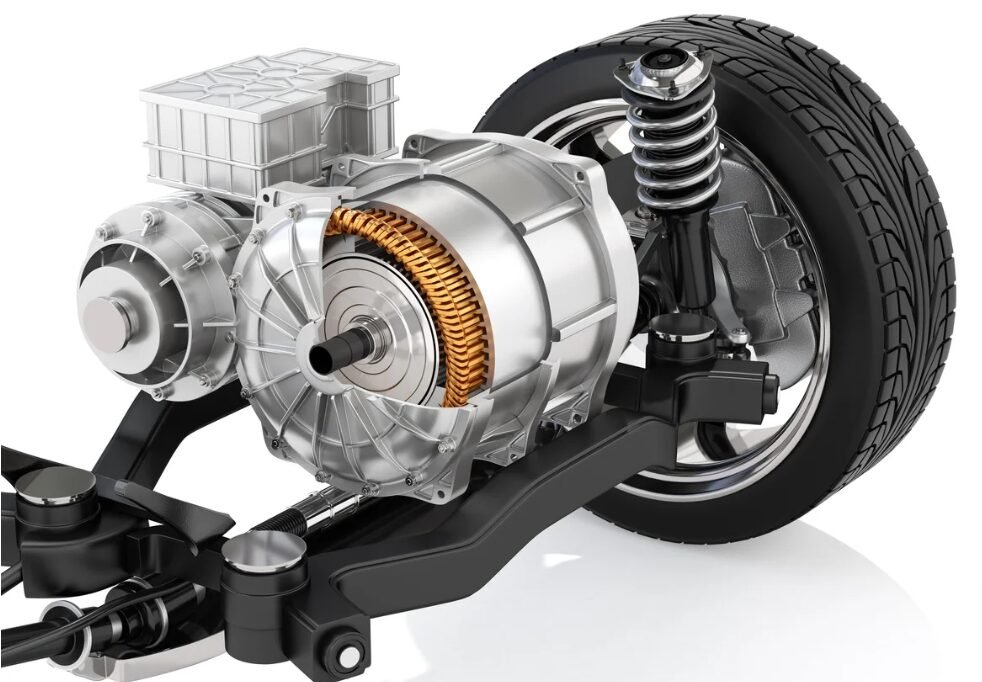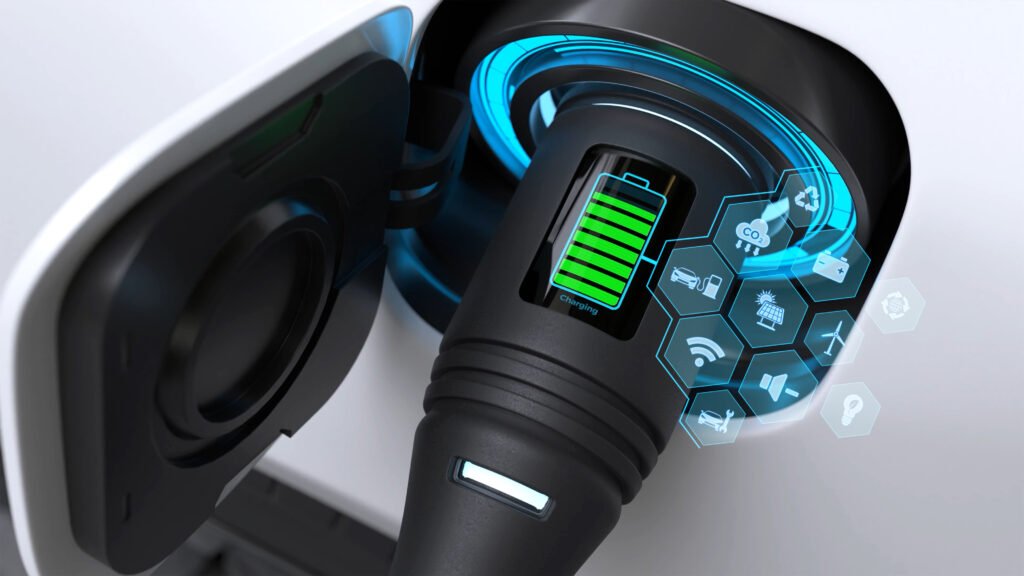As you consider switching to an electric vehicle (EV), you might be wondering about the maintenance requirements, particularly when it comes to oil changes. Unlike traditional gasoline-powered cars, EVs operate differently, and understanding their maintenance needs is crucial.

Traditional cars require regular oil changes to keep the engine lubricated and running smoothly. However, electric vehicles don’t have the same needs. Since EVs are powered by batteries and electric motors, they don’t require oil changes like conventional vehicles.
Despite this key difference, there are still important aspects of EV maintenance you should be aware of to ensure your vehicle runs efficiently and effectively.
Key Takeaways
- Electric vehicles do not require oil changes.
- EV maintenance focuses on battery health and electric motor performance.
- Understanding EV specifics can help you make informed decisions.
- Regular checks can ensure your EV runs efficiently.
- Proper maintenance can extend the lifespan of your electric vehicle.
Do Electric Cars Need Oil Changes?
The query about oil changes for electric cars is a frequent one, stemming from a mix of curiosity and misconception. As you’re considering or already driving an electric vehicle (EV), it’s essential to understand the lubrication needs of your car.
The Simple Answer About EV Lubrication
Electric cars do not need oil changes in the same way gasoline-powered cars do. This is because EVs are powered by electric motors rather than internal combustion engines (ICEs). Since electric motors don’t burn fuel, they don’t require the same lubrication as ICEs, which need oil to reduce friction and prevent wear on moving parts.
Why People Ask About Oil Changes for EVs
Despite the differences between EVs and traditional cars, many people still ask about oil changes for electric vehicles. This is largely due to the familiarity most drivers have with maintaining gasoline-powered vehicles. The concept of regular oil changes is deeply ingrained, leading to confusion when considering the maintenance needs of an EV. Understanding that EVs have different maintenance requirements can help clarify why oil changes are not necessary.
By recognizing these differences, you can better appreciate the unique characteristics of your electric vehicle and adjust your maintenance habits accordingly.
Understanding How Electric Cars Work
The mechanics behind electric cars are quite different from their gasoline-powered counterparts. Electric vehicles (EVs) operate on electric motors, powered by rechargeable batteries, eliminating the need for certain traditional maintenance tasks. This fundamental difference is key to understanding the servicing needs of electric cars.
Internal Combustion Engines vs. Electric Motors
Internal combustion engines (ICEs) generate power by burning fuel, which involves many moving parts and requires lubrication to reduce friction. In contrast, electric motors use electromagnetic forces to produce power, significantly simplifying their design.
Key Mechanical Differences
The most notable difference is the number of moving parts: ICEs have hundreds, while electric motors have just a few. This reduction leads to less wear and tear, directly impacting maintenance for electric vehicles.
- Fewer components mean less potential for mechanical failure.
- Simplified design results in reduced maintenance needs.
Absence of Engine Oil Components
Since electric cars don’t have internal combustion engines, they don’t require engine oil for lubrication. This absence is a significant factor in why electric car servicing differs from traditional vehicle maintenance.
Why Traditional Oil Changes Don’t Apply to EVs
Given that electric vehicles lack the complex engine systems of ICE vehicles, the need for regular oil changes is eliminated. This doesn’t mean EVs require no maintenance; however, their maintenance focuses on other critical areas, such as battery health and brake systems.
- Battery maintenance becomes a priority.
- Brake system checks are crucial due to the regenerative braking system.
Understanding these differences is essential for proper electric car servicing and ensuring the longevity of your vehicle.
Fluids and Lubricants in Electric Vehicles
Unlike conventional vehicles, electric cars rely on various fluids and lubricants to ensure optimal performance and longevity. While they don’t require traditional oil changes, EVs still need maintenance to keep their systems running smoothly.
Cooling Systems in EVs
Electric vehicles use cooling systems to regulate the temperature of their batteries and other components. This is crucial for maintaining performance and extending the lifespan of the vehicle.
Battery Thermal Management
Battery thermal management is a critical aspect of EV cooling systems. It involves regulating the temperature of the battery pack to ensure optimal performance and longevity. Proper thermal management can help prevent overheating and reduce the risk of battery degradation.
Coolant Maintenance Requirements
The coolant used in EV cooling systems needs to be checked and maintained regularly. Coolant maintenance requirements may vary depending on the vehicle manufacturer and model. It’s essential to consult your owner’s manual for specific guidance on coolant maintenance.
Transmission Fluid in Electric Cars
Many electric vehicles use a single-speed or multi-speed transmission, which may require transmission fluid to lubricate the gears. However, some EVs use a direct drive system, eliminating the need for transmission fluid. Check your vehicle’s manual to determine if transmission fluid is required.
Brake Fluid Requirements
Electric vehicles still require brake fluid to maintain their braking systems. Brake fluid should be checked regularly and replaced as needed. Failure to do so can lead to brake system problems and compromise safety.
| Fluid/Lubricant | Purpose | Maintenance Requirement |
|---|---|---|
| Coolant | Regulate battery and component temperature | Check and maintain regularly |
| Transmission Fluid | Lubricate transmission gears | Varies by vehicle; check owner’s manual |
| Brake Fluid | Maintain braking system | Check regularly and replace as needed |
By understanding the different fluids and lubricants used in electric vehicles, you can better maintain your EV and ensure it runs efficiently. Regular checks and maintenance can help prevent issues and prolong the lifespan of your vehicle.
Essential Maintenance for Electric Vehicles
To keep your electric vehicle in top condition, understanding its unique maintenance needs is essential. While electric vehicles (EVs) eliminate the need for oil changes, they still require regular maintenance to ensure they run efficiently and effectively.
Battery Care and Maintenance
Proper battery care is crucial for the longevity of your EV. This includes practices that affect the battery’s health and overall performance.
Optimal Charging Practices
Charging your EV correctly can significantly impact its battery life. Avoiding extreme charge levels (very full or very empty) and using the appropriate charging speed for your needs can help maintain battery health.
Temperature Considerations
Extreme temperatures can affect your EV’s battery performance and longevity. Parking in shaded areas or using garage parking during extreme weather conditions can help mitigate these effects.
Brake System Maintenance
EVs utilize regenerative braking, which reduces wear on the brake system. However, maintenance is still necessary.
Regenerative Braking Impact
The regenerative braking system in EVs captures kinetic energy and converts it back into electrical energy, reducing the wear on brake pads.
Physical Brake Service Needs
Despite regenerative braking, physical brake components still require periodic inspection and maintenance to ensure safety and performance.
Tire Rotation and Replacement
Just like conventional vehicles, EVs need regular tire rotation and replacement to maintain traction, handling, and safety.
| Maintenance Task | Frequency | Importance |
|---|---|---|
| Battery Health Check | Every 12,000 miles | High |
| Tire Rotation | Every 6,000 to 8,000 miles | High |
| Brake System Inspection | Every 12,000 miles | High |
As highlighted by a study on EV maintenance, “Regular maintenance is not just about preventing issues; it’s also about optimizing the vehicle’s performance and longevity.”
“Electric vehicles are not maintenance-free; they require a different kind of maintenance focus compared to traditional internal combustion engine vehicles.”
Common Misconceptions About Electric Car Servicing
The notion that electric vehicles don’t need regular servicing is a myth that needs to be debunked. While electric cars have fewer moving parts than their gasoline-powered counterparts, they still require maintenance to ensure optimal performance and longevity.
The “Maintenance-Free” Myth
Many people believe that because electric vehicles don’t have internal combustion engines, they don’t need oil changes or other traditional maintenance tasks. However, this doesn’t mean they’re entirely maintenance-free. EVs still have batteries, motors, and other components that require attention.
Understanding True Maintenance Requirements
To keep your electric vehicle running smoothly, it’s essential to understand its true maintenance requirements. This includes checking and maintaining the battery, brake system, and tires, among other components.
Manufacturer Recommendations
It’s crucial to follow the manufacturer’s recommended maintenance schedule for your electric vehicle. This may include regular inspections, software updates, and other tasks to ensure your car continues to run efficiently.
DIY vs. Professional Service
While some maintenance tasks can be performed by the owner, others require professional expertise. It’s essential to know when to DIY and when to seek the help of a qualified mechanic or dealership.
By understanding the true maintenance requirements of your electric vehicle and following the recommended schedule, you can enjoy a safe and efficient driving experience.
Recommended Maintenance Schedule for Electric Vehicles
To keep your electric vehicle in top condition, it’s essential to follow a recommended maintenance schedule. Unlike traditional gasoline-powered cars, electric vehicles (EVs) have different maintenance needs due to their unique powertrain and fewer moving parts.
Regular Service Intervals
You should have your EV serviced regularly, typically every 12,000 to 15,000 miles, or as recommended by the manufacturer. Regular checks include:
- Inspecting the battery and its cooling system
- Checking tire pressure and tread depth
- Ensuring brake pads and fluids are at optimal levels
Seasonal Maintenance Considerations
Seasonal changes can impact your EV’s performance. Before extreme weather conditions, check your vehicle’s:
- Tire pressure, as it can fluctuate with temperature changes
- Battery performance, although most EVs are designed to operate efficiently across various temperatures
Long-Term Maintenance Planning
Planning for long-term maintenance involves understanding the potential costs and needs of your EV over time.
5-Year Maintenance Outlook
Over a five-year period, you can expect to need replacements or inspections for items like tire replacements and brake pad checks.
10-Year Maintenance Outlook
At the 10-year mark, consider a more thorough inspection, including the battery health and potential need for replacement, depending on the manufacturer’s warranty and the vehicle’s usage.

By following this maintenance schedule, you can ensure your electric vehicle remains in optimal condition, providing you with a reliable and efficient driving experience.
Cost Comparison: EV Maintenance vs. Gas Vehicle Upkeep
As you weigh the pros and cons of electric vehicles versus traditional gas-powered cars, maintenance costs are an essential aspect to examine. Electric vehicles (EVs) are known for their efficiency and lower operational costs, but how do they stack up in terms of maintenance?
Short-Term Maintenance Costs
In the short term, electric vehicles generally have lower maintenance costs compared to their gas-powered counterparts. This is primarily due to the fewer moving parts in EVs, which translates to less wear and tear on the vehicle.
First Year Expenses
In the first year of ownership, EVs typically require less maintenance, with costs often limited to tire rotations and brake checks. You can expect to save on oil changes, as electric cars do not need oil changes.
Years 2-5 Expenses
For years 2 through 5, the maintenance costs for EVs remain relatively low. You may need to replace tires and perform brake maintenance, but overall, the expenses are significantly lower than those for gas vehicles.
Long-Term Savings on Maintenance
Over the long term, maintaining an electric car can lead to substantial savings. With fewer components to replace and no oil changes required, EVs offer a cost-effective alternative to traditional gas-powered vehicles. This makes EVs an attractive option for those looking to reduce their vehicle maintenance expenses.
Conclusion: The Future of Electric Vehicle Maintenance
You now understand that electric vehicles (EVs) don’t require oil changes like traditional gasoline-powered cars. This key difference significantly impacts the overall maintenance needs of EVs. As discussed, EVs have distinct maintenance requirements, focusing on battery care, brake system maintenance, and tire rotation.
The evolving nature of EV technology will likely lead to further reductions in maintenance needs. Advances in battery technology and other components will continue to shape the future of electric vehicle maintenance. As the industry moves forward, you can expect even more efficient and reliable EVs, making electric vehicle maintenance more streamlined.
When considering electric vehicle maintenance, it’s clear that EVs offer a more straightforward and potentially cost-effective option compared to traditional vehicles. The absence of ev oil change requirements is just one of the many benefits. As you explore the world of EVs, you’ll find that their maintenance needs are designed to be more manageable, allowing you to enjoy a smoother driving experience.
FAQ
Do electric cars need oil changes?
No, electric cars do not need oil changes because they are powered by electric motors, not internal combustion engines. However, they still require other types of maintenance, such as battery care and brake system maintenance.
What kind of maintenance do electric vehicles require?
Electric vehicles require maintenance such as battery care, brake system maintenance, tire rotation, and inspection of other essential systems. You should also check the coolant and brake fluid levels regularly.
How often should I service my electric car?
The service interval for your electric car depends on the manufacturer’s recommendations, typically ranging from 12,500 to 18,750 miles. You should consult your owner’s manual for specific guidance.
Can I perform maintenance on my electric vehicle myself?
While some maintenance tasks, such as tire rotation, can be performed by you, more complex tasks, like battery maintenance, may require professional service. It’s essential to follow the manufacturer’s recommendations.
Are electric vehicles really maintenance-free?
No, electric vehicles are not entirely maintenance-free. While they don’t require oil changes, they still need regular maintenance to ensure optimal performance and longevity.
How do I maintain my electric vehicle’s battery?
To maintain your electric vehicle’s battery, follow optimal charging practices, avoid extreme temperatures, and keep the battery level between 20% and 80% charged if possible.
Do electric cars have transmission fluid?
Some electric cars have transmission fluid, but it’s not as common as in traditional gasoline-powered vehicles. You should check your owner’s manual to determine if your electric vehicle requires transmission fluid maintenance.
How does regenerative braking impact brake maintenance?
Regenerative braking reduces the wear on your brakes, but you still need to inspect and maintain your brake system regularly to ensure optimal performance and safety.







